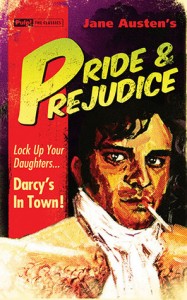 Title: Main Street (Goodreads)
Title: Main Street (Goodreads)
Author: Sinclair Lewis
Published: Modern Library, 1920
Pages: 448
Genres: Classic
My Copy: Personal Copy
Buy: Amazon, Book Depository (or visit your local Indie bookstore)
Main Street; that primary street in every small town that is exactly the same, full of stores and guaranteed to run into people you know. Carol Kennicott finds herself moving to Gopher Prairie, Minnesota with her new husband. Carol is a liberal, free spirited city girl who finds herself appalled by the backwardness of this small country town. Her disdain for the town’s ugliness and smug conservatism compels her to change it.
I grew up in Gopher Prairie; well not exactly but when I was just starting high school I was moved from Sydney to a small mining town in North Queensland called Charters Towers, so I know what Carol was going through. Sure, it wasn’t the 1910’s but for someone that loves city life (even at a young age) this move was devastating. Main Street is a satirical novel by Sinclair Lewis about the pettiness, back-stabbing and hypocrites that make up a small town. I will admit that I had never heard of this book until I read Z: A Novel of Zelda Fitzgerald. Knocking This Side of Paradise by F. Scott Fitzgerald off the number one spot, Main Street became extremely popular becoming one of the major best sellers of its time. Naturally having read about the impact this book had on the Fitzgerald’s and the readers of the time, I looked this book up and immediately added it to my “to read” list.
Carol is the heroine of this novel; enthusiastic and with high hopes for her future, she finds herself in a town that expects her just to play the house wife. Her love of sociology and her degree in English literature appear to be useless to Carol in Gopher Prairie. She feels like an outsider and even when she tries to fit in by throwing a Chinese themed party (where the guests feel bewildered by the strangeness of it all) or joining the woman’s group, the culture shock leaves her unsatisfied. I had to laugh at the woman’s group when they gathered to discuss poetry, Carol felt excited and asked which poets they will discuss. Their reply was ‘all of them’ and she finds herself in a very generic conversation about poets. At the end of the meeting she enquires about other poets which were missed and how they could improve this discussion, in which they decide that one extra meeting devoted to poetry will cover everything.
“I do not admit that Main Street is as beautiful as it should be! I do not admit that dish-washing is enough to satisfy all women!”
Carol struggles to find her identity within this town, she thinks of herself as some sort of artist and intellectual but Gopher Prairie doesn’t appear to give her the stimulation she so desires. She sees the other woman in the town as lacking of intelligence, curiosity or even a personality and never feels like she will be satisfied with all the other women. Living in the small town slowed her path to self-discovery; I feel like in any other circumstance Carol would have discovered her true identity a lot sooner.
The people of Gopher Prairie have grown complacent and comfortable with the familiar. So when Carol tries to make a change, she is met with resistances; not just because she is a woman but also being an outsider. While she is trying to get involved and make the town a better place by proposing they revitalise city hall and turn it into a meeting centre for events and dances, the town is worried she might make young people aware of sexuality while they are still in high school. You have to chuckle at their backwards ideas, I don’t think I ever thought improving the town would ever lead to sexual corruption of the youth.
I really enjoyed this satirical novel; while people thinking this novel wasn’t funny did lead me to write a post about understanding satire, I did think this was humorous. I think this is just me relating to the backwardness of a small town like Gopher Prairie. Times have changed a lot since the 1910’s but in a small town it kind of feels like nothing has changed. Not necessarily an easy book to read, but I really did like the culture clash between the “wholesome” small town and an outsider. Sinclair Lewis got it right when he wrote about just how difficult it is being an outsider in a town where everyone knows everyone.

 Title: Heart of Darkness (
Title: Heart of Darkness ( Title: Pride and Prejudice (
Title: Pride and Prejudice ( Title: Lolita (
Title: Lolita ( Title: Les Misérables (
Title: Les Misérables ( Title: On The Road (
Title: On The Road ( Title: Ethan Frome (
Title: Ethan Frome ( Title: True Grit (
Title: True Grit ( Title: As I Lay Dying (
Title: As I Lay Dying ( Title: The Master and Margarita (
Title: The Master and Margarita (